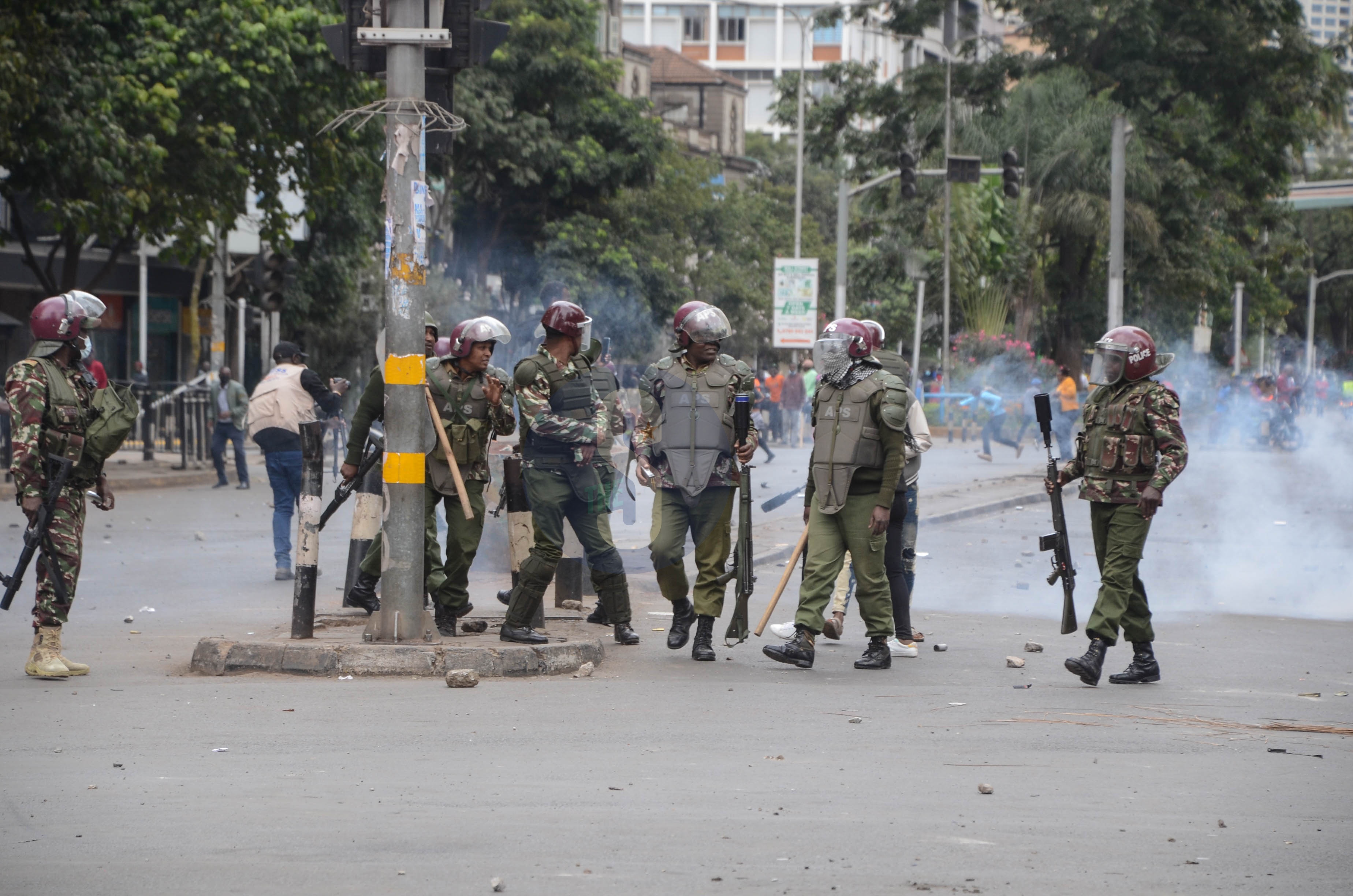
Anti-riot police officers who were deployed to quell the recent Gen Z-led protests were working on empty stomachs, Ipoa has revealed.
In its monitoring report on policing response to the June and July protests, the Independent Policing Oversight Authority (Ipoa) says the National Police Service did not provide meals to the officers for the entire period they engaged protesters in running battles in Nairobi and other urban areas where protests were held.
"Ipoa monitors observed that police officers deployed were not provided with meals during the demonstrations," the report signed by Ipoa chairperson Isaack Hassan says.
The report covered four protests held on June 12, June 17, the commemorative June 25 revolt and the Saba Saba demonstrations on July 7.
"The Inspector General of Police should allocate a sufficient budget to ensure that meals, water and allowances are provided for police officers deployed to provide security during protests," Ipoa said in its recommendation.
The authority said the survey revealed that police arrested a total of 1,126 people during the riots, 223 of whom were arraigned in court across the country and charged with various offences.
The most arrests were on July 7 (720), followed by 362 on June 25 and only four on June 17. No arrests were made on June 12, the report notes.
Despite working on empty bellies, Ipoa said the monitoring team established that the officers were well protected while on the frontline.
"Armed police officers protected vital installations using razor wire, water cannons and teargas. For protection, they wore protective gear including shields and helmets," the report notes.
"Stand-by vehicles were also available for logistical support."
But even then, the report says 171 officers were injured; 99 during the June 25 and 72 during the Saba Saba riots.
Ipoa recommended that, going forward, the IG should ensure that medical personnel are facilitated during protests to ensure prompt medical response to the injured.
"The IG should also establish a dedicated Public Hospital Security Unit to safeguard public medical facilities and support medical responders, especially in high-risk protest areas," the authority said.











